Responsibility, Reciprocity, Relationality, and Windsor's National Urban Park
This event has passed
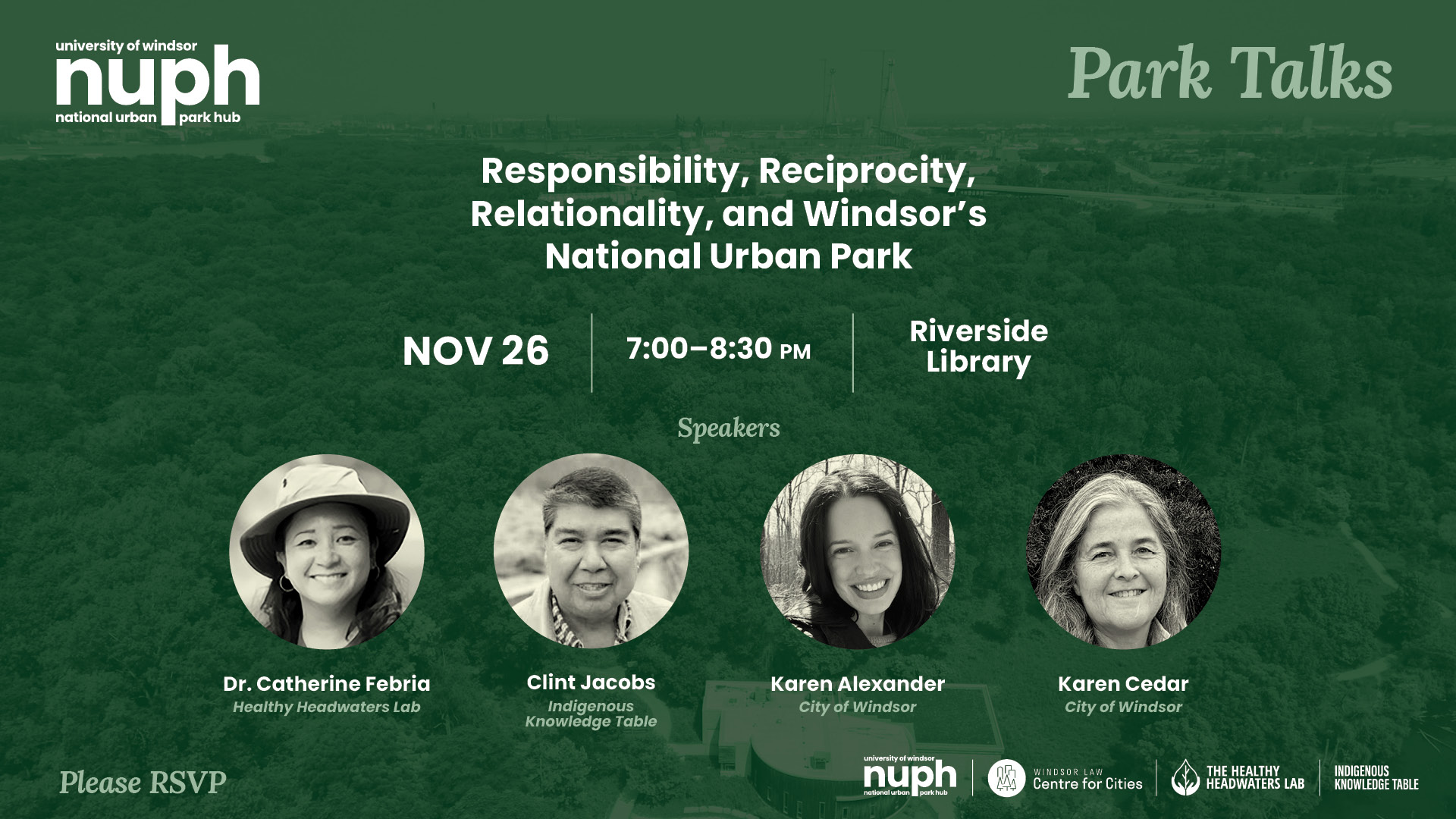
The University of Windsor National Urban Park Hub (UW-NUPH) invites you to the third and final event in our Park Talks series, an exciting and thought-provoking set of discussions exploring the future of Windsor's proposed National Urban Park.
This event will offer a unique opportunity to learn about the health of our watershed and how it impacts the well-being of the proposed National Urban Park in Windsor.
About the speakers
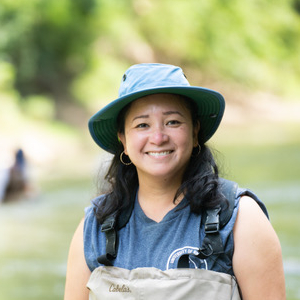
Dr. Catherine Febria
Healthy Headwaters Lab, University of Windsor
Dr. Catherine Febria leads research on freshwater ecology and restoration, including monitoring across the Little River Corridor and surrounding watersheds. She directs the Healthy Headwaters Lab at GLIER to enable place-based science, science-policy-practice connections, and partnership-based approaches to research, mentorship and ecosystem monitoring.
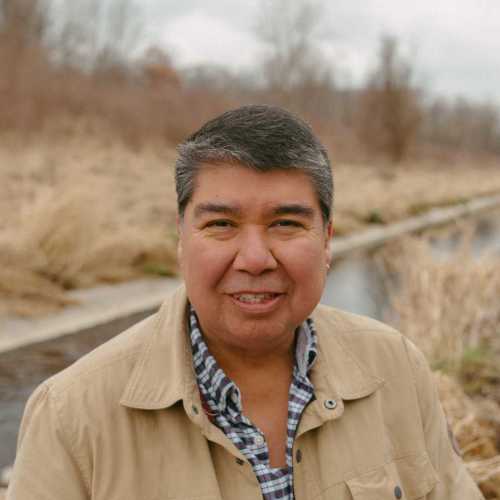
Clint Jacobs
Indigenous Knowledge Table, University of Windsor
Professor Clint Jacobs is a Council member of Walpole Island First Nation and Indigenous Knowledge Connector at UW-NUPH, will discuss his role in advancing co-creation efforts and fostering connections with Indigenous communities across the region.
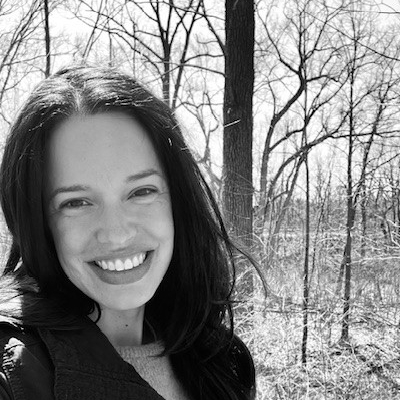
Karen Alexander
City of Windsor
Karen Alexander is a Naturalist and Ojibway Nature Centre outreach co-ordinator and is overseeing the creation of the meadows at McHugh, Dewert and Little Dragon Fly Parks, which are along the Little River Corridor.
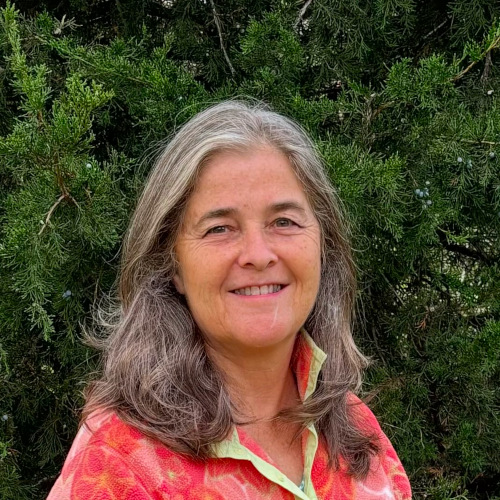
Karen Cedar
City of Windsor
Karen Cedar is a UW-NUPH project lead and former Naturalist of the City of Windsor. Karen is devoted to connecting people to Nature and supporting Indigenous-led conservation and stewardship.
About the Park Talks Series
This series is designed to foster community engagement and promote discussions that align with the National Urban Park Program's core objectives. Each session will dive into the intersection of nature conservation, equitable access, and Indigenous-led stewardship, and how these principles inform the vision for Windsor's National Urban Park. It's an opportunity to deepen our collective understanding of the environmental, social, and cultural dimensions that are key to creating an inclusive and sustainable urban park for future generations.
Read more about the series here.
We acknowledge with gratitude the land, air, water, fire and all the beings of creation that sustain us. We honour the longstanding relations of many First Peoples to this place since time immemorial (including the Anishnaabe, Haudenosaunee, Lunaapee, and Huron/Wendat Peoples). We acknowledge colonial harms. We commit to renewed and respectful relations to people, nature and this place.

® 2024 University of Windsor
